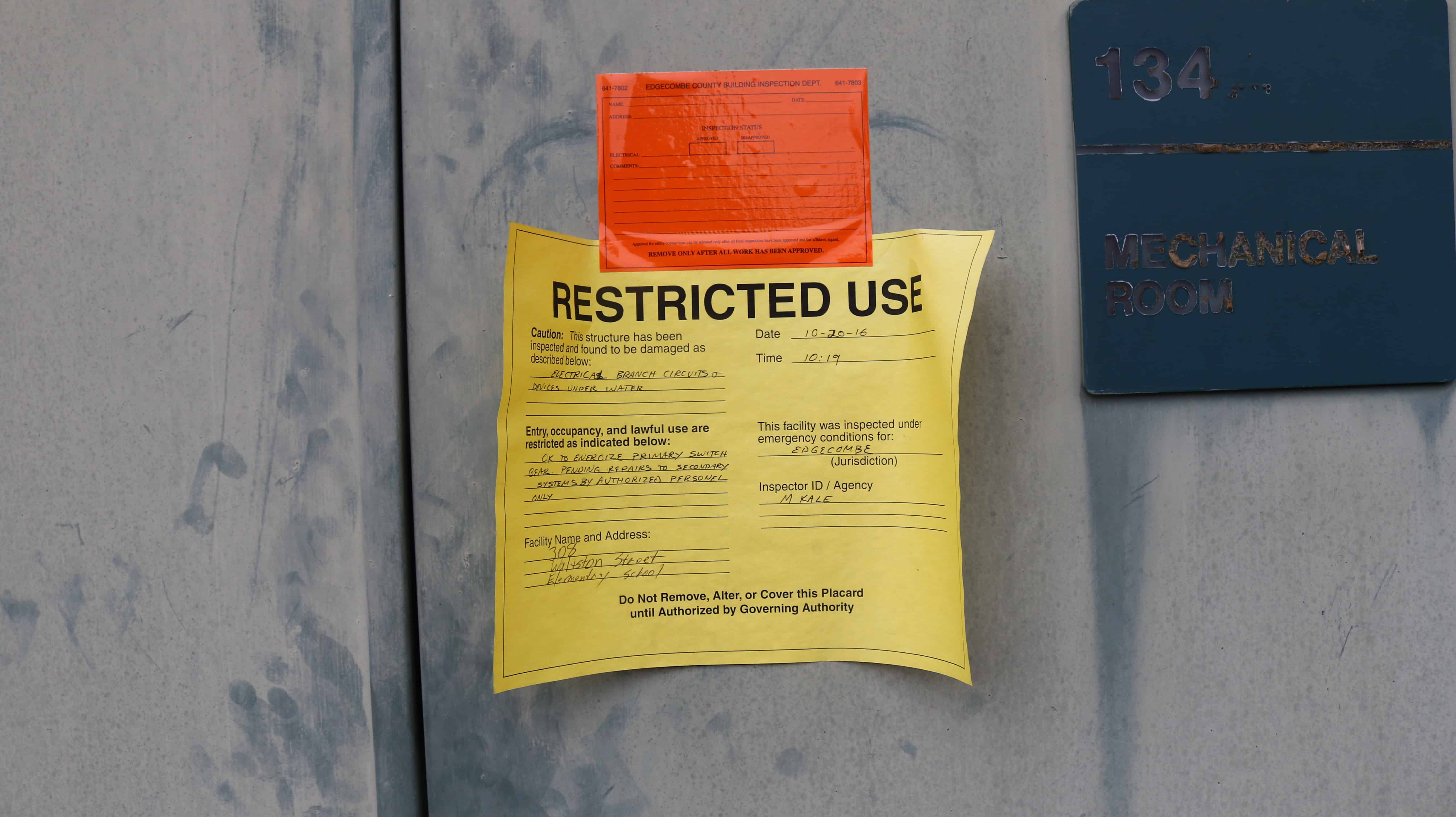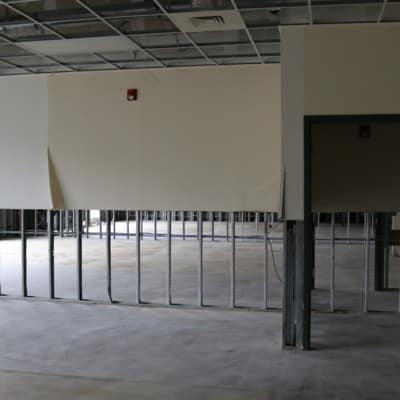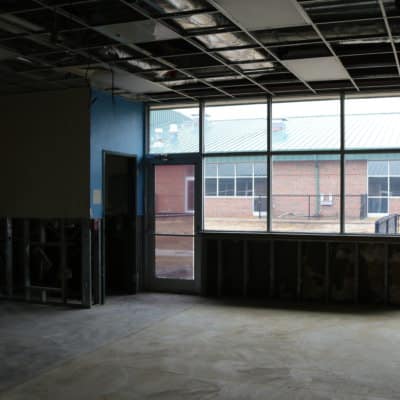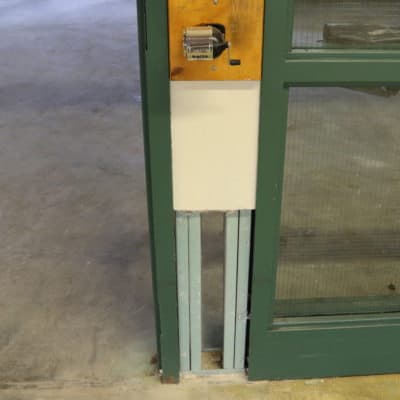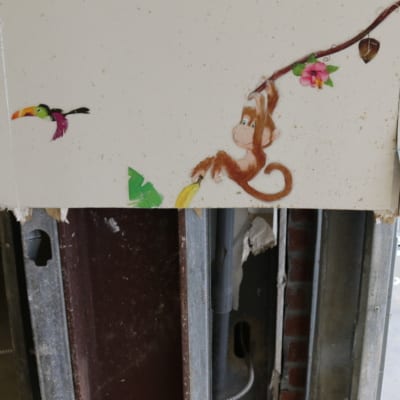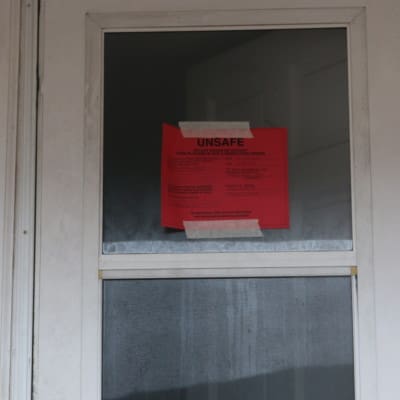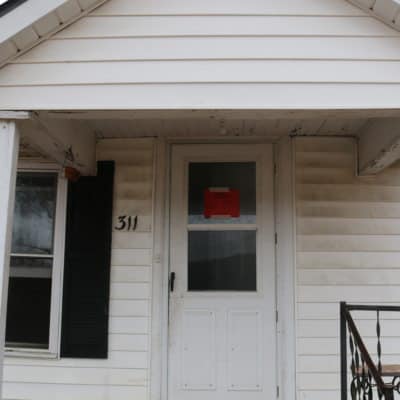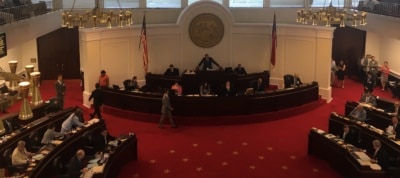As Princeville Elementary students settle in at the Bridgers building in nearby Tarboro, the building that was filled with storm water from Hurricane Matthew in late October remains empty.
The ruined furniture, decorations, books, and materials have been removed. The damaged drywall has been cut out. The entire building has been dried.
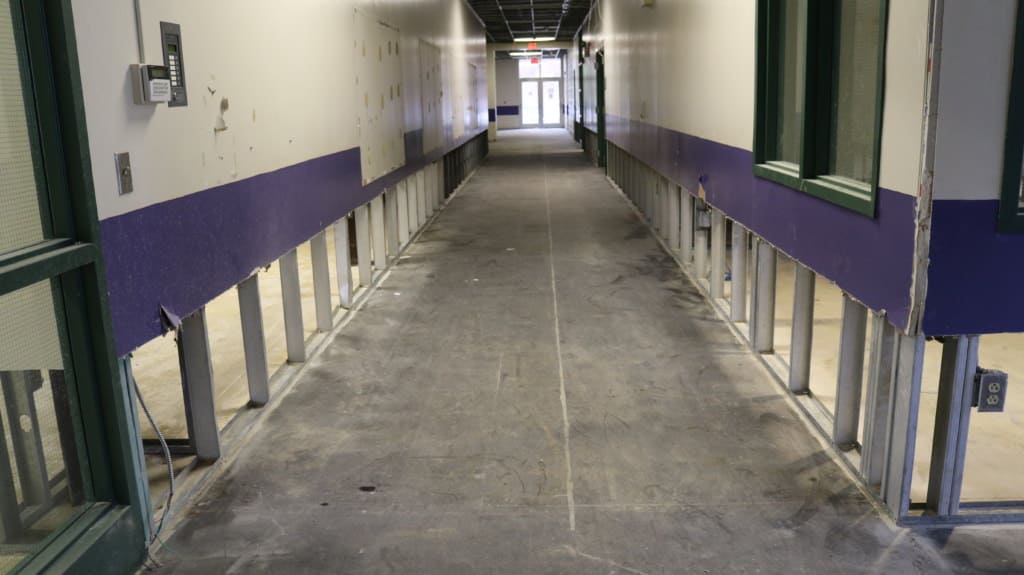
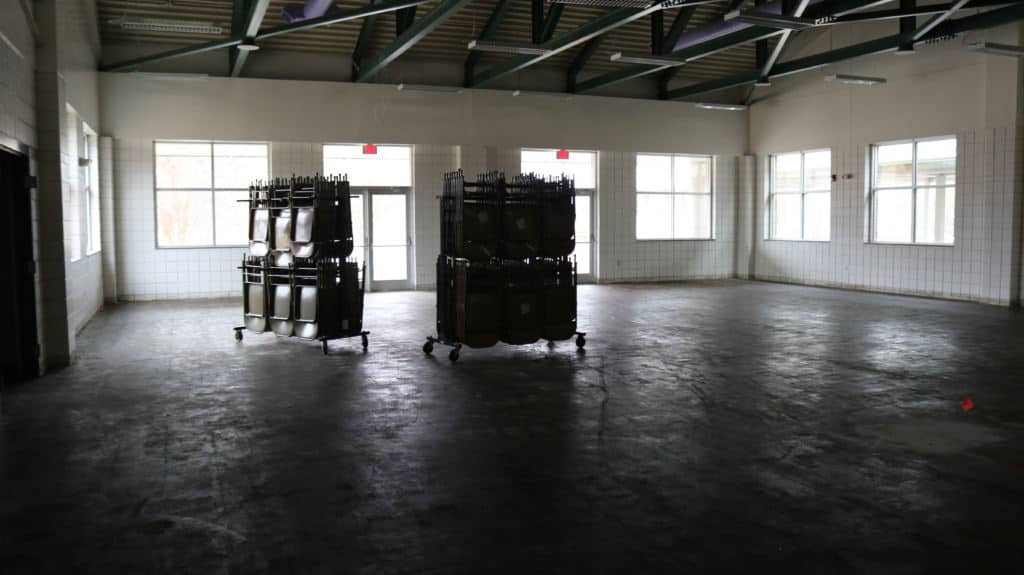
Edgecombe County Public Schools (ECPS) maintenance director David Coker said he’s met with architects to discuss redesigning the building. So far, all of that expense would be paid for with the school system’s insurance — which is through the state Department of Public Instruction (DPI).
Ben Matthews, the director of safe and healthy schools support at DPI, said Princeville Elementary reported $2.4 million in damages to DPI. Matthews said that so far, the department has paid the school district $588,000 toward those damages, but will fully reimburse the reported costs.
Coker said FEMA is supposed to make another visit to the building soon, this time to see if they can think of ways to protect the building in the case of another storm. Seventy-five percent of those funds, Coker said, would come from the federal government, and 25 percent would come from the state level.
They have received approval to rebuild the school — which Coker said is the plan. No one has given him specific estimates yet.
Governor Pat McCrory has called for a special legislative session, which starts today. He has asked for $200 million in disaster relief to cover five categories, which he explained in a video released Monday. All of the below categories would affect the recovery of the community and schools of Princeville. McCrory said he is asking the General Assembly to approve funding to address:
- Housing
The requested funding would help with short-term housing not addressed by FEMA; and grants for home ownership, rent, construction, and repairs. - Local government issues
McCrory said adjustments would be made to school calendars for school systems that were closed for long periods. Funds would also be spent on infrastructure repairs, trash pickup, and river maintenance. - Economic development and stabilization
McCrory wants to help with “getting businesses back on their feet,” he said in the video. - Planning
The funds would find sustainable ways to rebuild hard-hit communities. - Disaster relief
Part of the funding would go to the state’s share of federal and state disaster relief.
Democratic State Representative Shelly Willingham represents both Martin and Edgecombe counties, but he lives in Edgecombe and has seen the impact of the hurricane first hand.
“I’ve talked to folks, and they can’t even talk about it without getting real emotional…because they don’t know what the next day is going to be,” he said.
He said he hopes the special legislative session results in legislation that can help with some of the immediate needs of the people of Edgecombe — like getting into more steady living situations.
“Money needs to be put there to get people out of the hotels and out of the temporary sites where they are and get them into something more permanent,” he said.
He also hopes some money can go to help the school system, particularly since so many students have been displaced from Princeville Elementary. He said the county needs money to get the Bridgers building in shape so it can be a beneficial learning environment.
And it’s not like Edgecombe has extra money laying around for education, he said.
“Our schools are funded. You get a certain amount and you don’t get any more,” he said.
He said he hopes Republicans and Democrats can come together to help the people of North Carolina today.
“I hope that we can do this in a non-partisan way and try try to address the needs of the folks who are affected,” he said. “And I think we will be able to do that.”
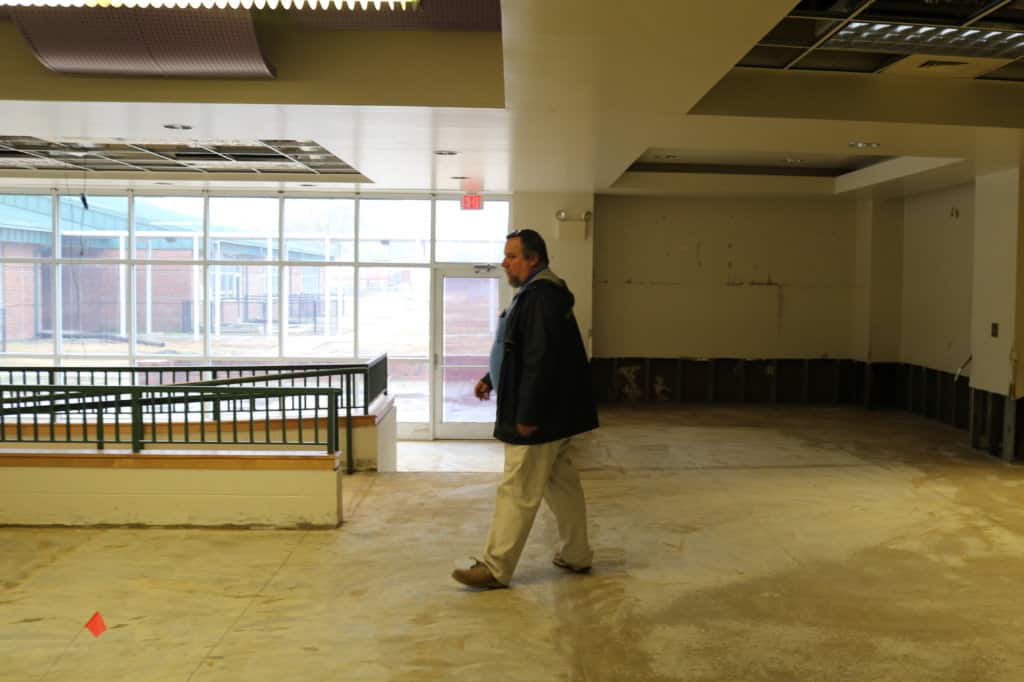
As for rebuilding Princeville Elementary, the one thing Coker said he thinks could be done better next time is moving the air conditioning units to a safer place. The units, which were located in four closets on ground-level, were completely ruined. As was basically everything else from the middle of the building, down. In many areas, the upper half of offices, classrooms, the media center, and cafeteria, looked unscathed.
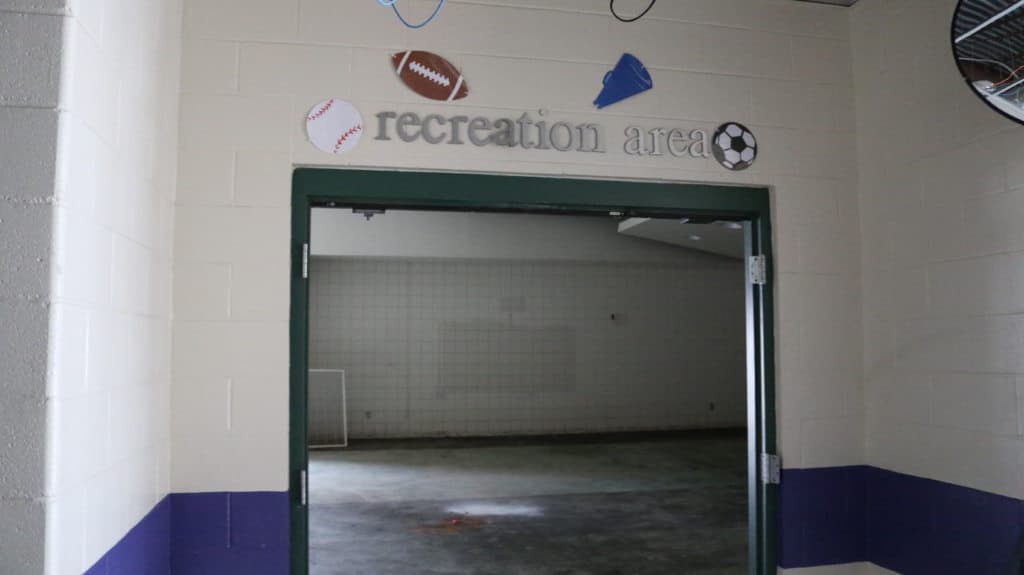
Outside the school, red signs were posted on the doors of houses and apartments, deeming them unsafe to live in, or even enter. Besides a few people with pick-up trucks removing residents’ belongings from the piles on the streets, no one was around on a rainy Tuesday afternoon.
While many students and their families remain in the hotels, or in the homes of family and friends, the question lingers: when will they return, if ever?
Princeville’s town board is considering different options from FEMA on how to move forward. Princeville Mayor Bobbie Jones and the town board are grappling over whether to rebuild with strategic construction or accept a buy-out, where residents could choose to take the market value of their home and sell the property to the town. In that case, that land could never be built on again.
But, for now, plans for Princeville Elementary are moving forward.
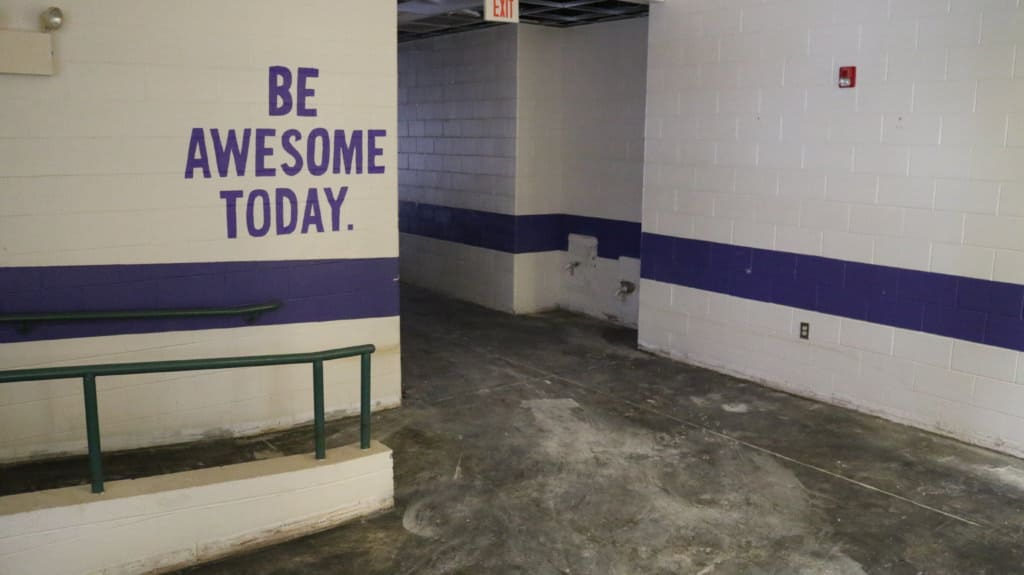
Hurricane Matthew’s impact went far beyond Princeville, or Edgecombe County. Out of the school systems that have insurance through DPI, Matthews said 19 local school districts, 75 schools, and eight central office buildings reported damages — for a total cost of $13,138,157.25 as of Monday.
The U.S. Geological Survey reports that at least 24 rivers reached record peaks from Hurricane Matthew rainfall across the state of North Carolina — along with five record peaks in Florida and three in South Carolina. Below is a map from the USGS indicating water levels on the coast from Virginia to Florida. Go here to interact with the map by adjusting filters and clicking on sensor locations for water-level information.
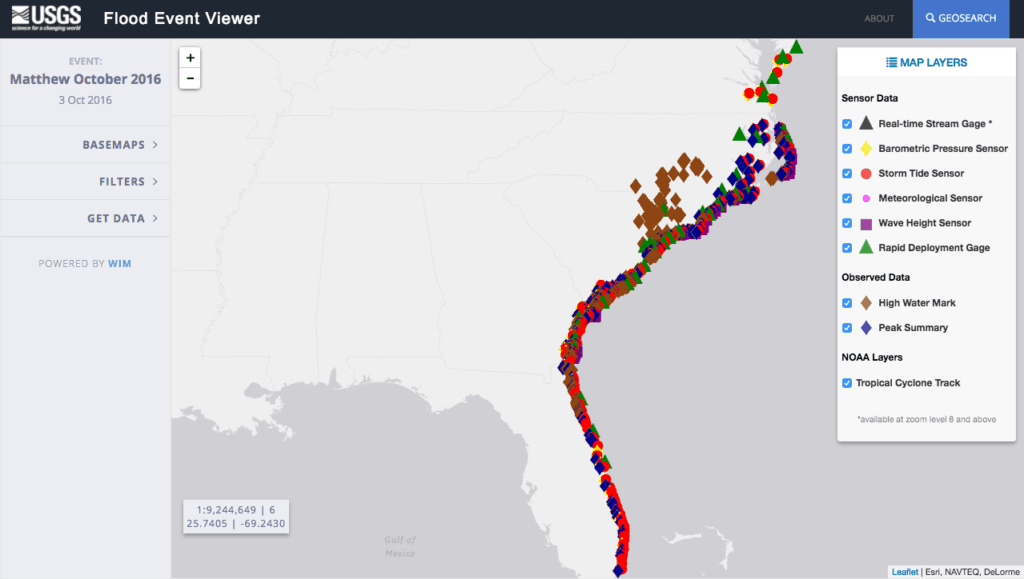
Recommended reading


